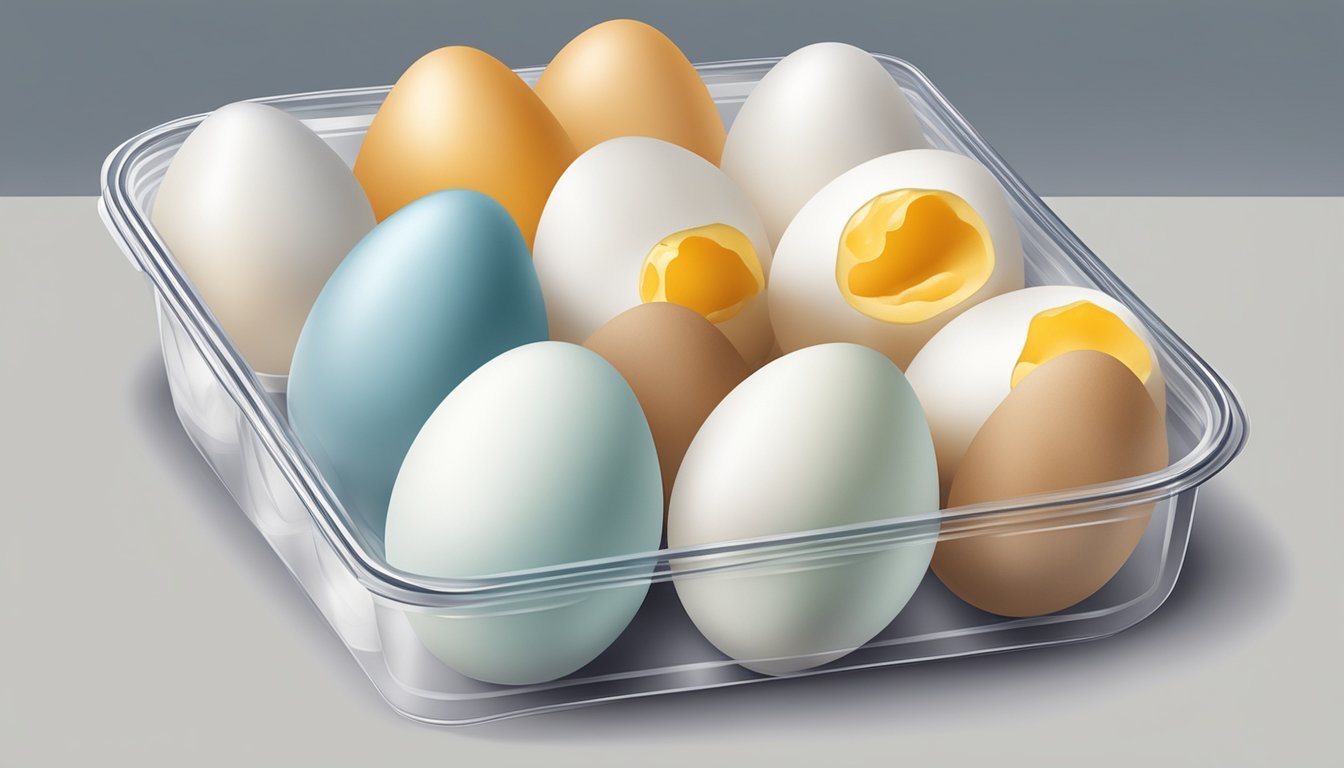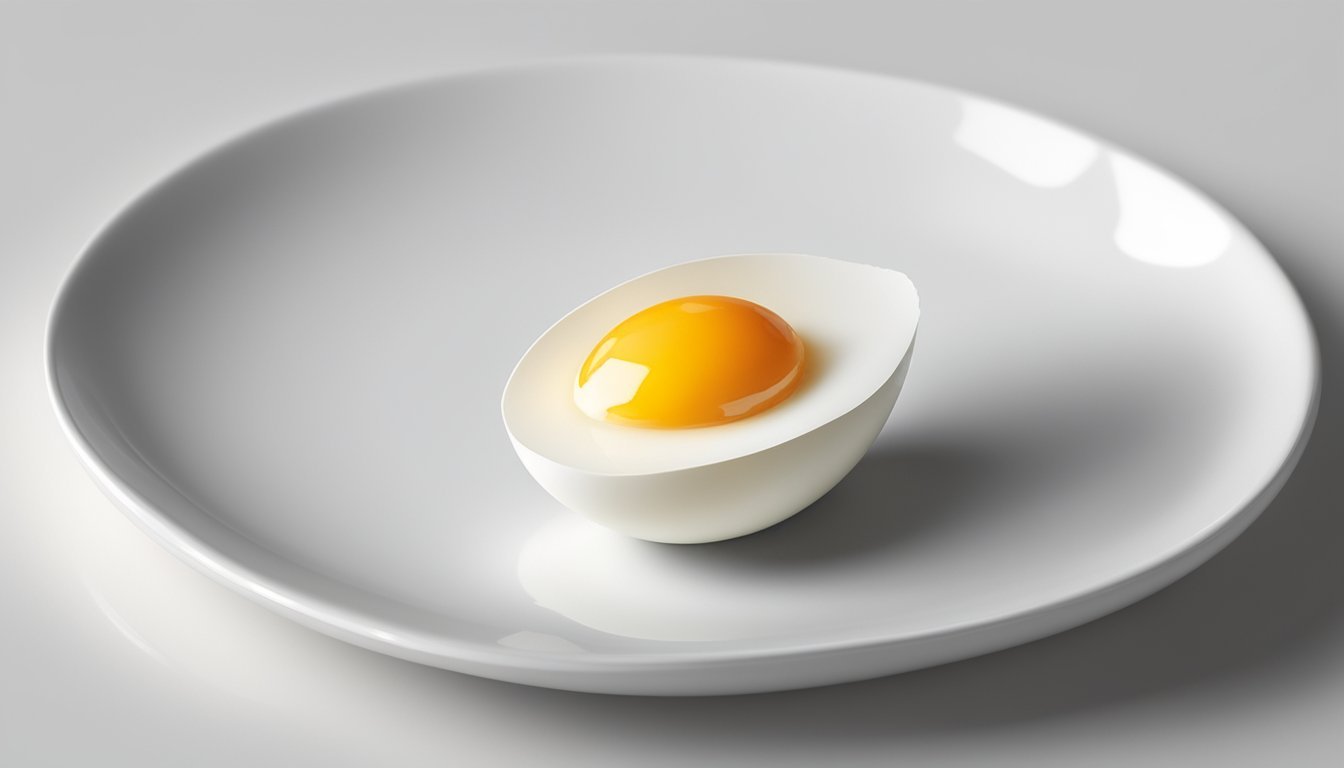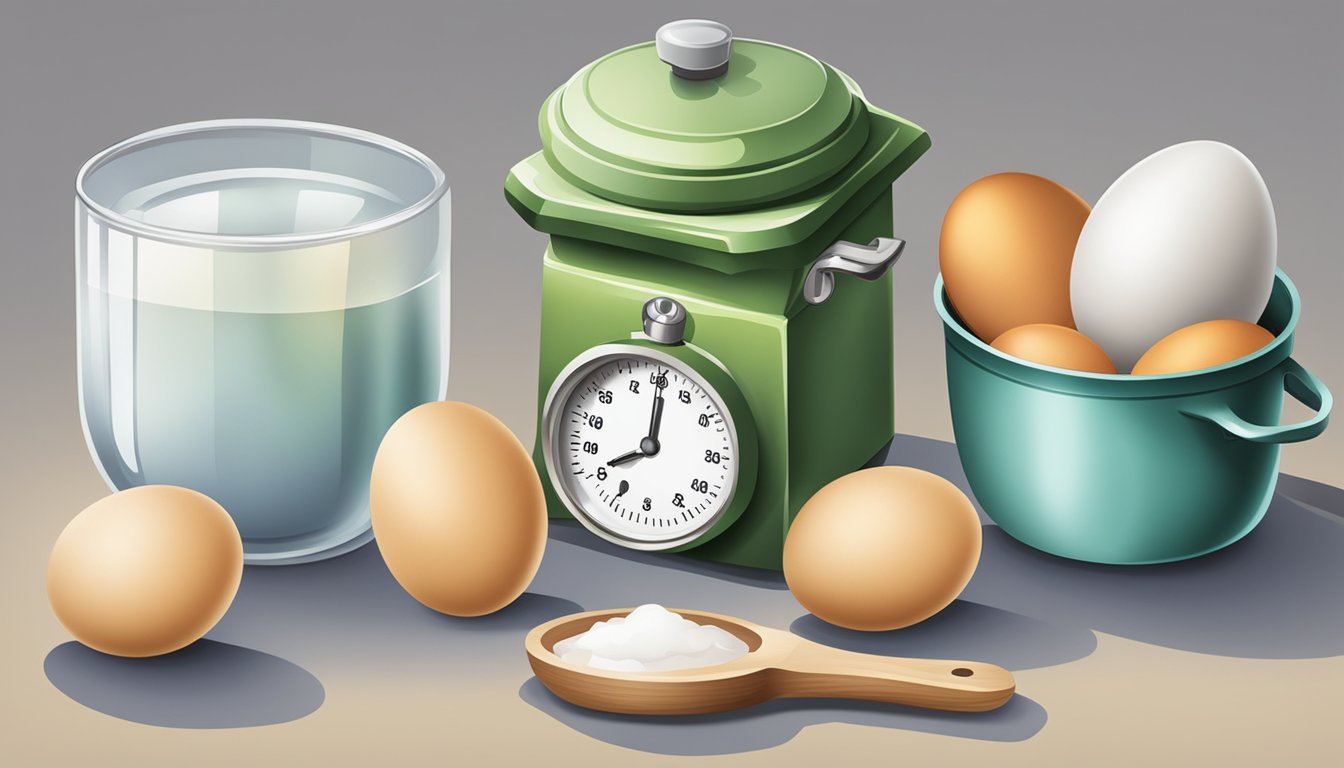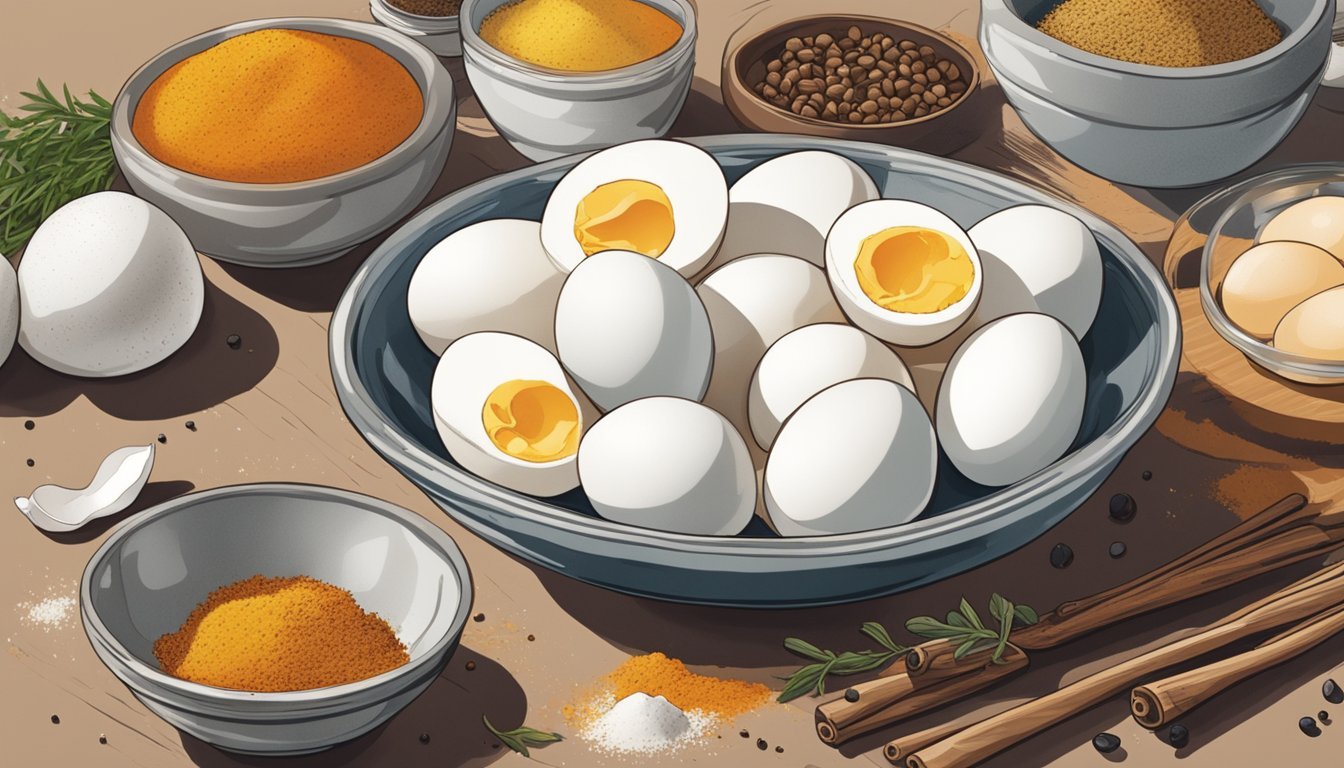Do Hard-Boiled Eggs Spoil?
Essential Facts and Tips for Storage
Hard-boiled eggs, a staple in many households, raise a common concern: do they spoil? Proper storage is key to maximizing their shelf life and ensuring your safety. When stored in the refrigerator with their shells on, hard-boiled eggs can last up to one week.
In terms of food safety, it's important to recognize visual and sensory cues that indicate spoilage. A good hard-boiled egg should have a clean smell and a firm texture. Any slimy or chalky feel may be a sign that the egg has gone bad.
Nutritionally, hard-boiled eggs are an excellent source of protein and other essential nutrients, making them a healthy snack or meal addition. Careful attention to storage and timely consumption helps keep this nutrient-rich food safe and enjoyable.
Understanding Hard-Boiled Eggs
Hard-boiled eggs are a common staple in many diets due to their simplicity and nutritional benefits. This section will cover what hard-boiled eggs are and their nutritional profile.
What Are Hard-Boiled Eggs?
Hard-boiled eggs are eggs that have been boiled in their shells until both the egg white and yolk are solid. The process involves placing the eggs in a pot of water, bringing the water to a boil, and then letting the eggs sit in the hot water for a set period, typically around 10-12 minutes.
After boiling, they are often placed in cold water to stop the cooking process and make peeling easier. Hard-boiled eggs have a firm texture and are commonly used in salads, snacks, and as a protein-rich addition to meals.
Nutritional Profile of Hard-Boiled Eggs
A hard-boiled egg is rich in protein, primarily found in the egg white. An average hard-boiled egg contains about 6 grams of high-quality protein, which includes all essential amino acids. The egg yolk, although higher in fats, contains vital nutrients such as vitamin D, B vitamins, and choline.
Calories are moderate, with one large hard-boiled egg containing around 70 calories. They also provide healthy fats, which are necessary for various bodily functions. The yolk contains most of the egg's vitamins and minerals, including iron, phosphorus, and selenium.
Dietary benefits of hard-boiled eggs include being a good source of protein for muscle repair and growth, aiding in weight management by promoting satiety, and offering important nutrients that support overall health.
Proper Storage Techniques
Storing hard-boiled eggs correctly is essential to maintain their freshness and prevent spoilage. Key factors include proper refrigeration, choosing whether to peel them, and understanding the limitations of freezing.
Refrigerating Hard-Boiled Eggs
When refrigerating hard-boiled eggs, it is best to keep them in their shells. The shell acts as a barrier against moisture loss and odors from other foods. Place unpeeled eggs in an airtight container or a resealable plastic bag to minimize exposure to air and potential contaminants.
If the eggs have already been peeled, wrap them in a damp paper towel and store them in an airtight container. This helps maintain their moisture. Both peeled and unpeeled eggs should be consumed within a week when kept refrigerated.
Freezing Hard-Boiled Eggs
Freezing hard-boiled eggs is not generally recommended as it can affect their texture. The whites become rubbery and watery upon thawing, making them less palatable.
If freezing is necessary, it's better to freeze only the yolks. Separate the yolks from the whites after boiling and place them in a single layer on a baking sheet to freeze individually. Once frozen, transfer the yolks to a ziplock plastic bag or airtight container and store them in the freezer. Frozen yolks can be kept for up to three months.
Storing Peeled and Unpeeled Eggs
Storing hard-boiled eggs can vary depending on whether they are peeled or unpeeled. Unpeeled eggs should be kept in the fridge in an airtight container on the middle shelf to ensure consistent temperature. This minimizes odor absorption from other foods.
For peeled eggs, use a damp paper towel to wrap them before placing them in an airtight container. This helps to keep the eggs moist and prevents them from drying out. Peeled eggs should be consumed more quickly, ideally within 3 to 4 days, to ensure they remain fresh.
By following these specific methods, you can significantly extend the shelf life of hard-boiled eggs and enjoy their quality longer.
Safety and Consumption
Keeping hard-boiled eggs safe to eat and understanding when they have spoiled is critical. Knowing the signs of spoilage and adhering to food safety guidelines are essential steps to enjoy hard-boiled eggs without risks.
Identifying Spoiled Hard-Boiled Eggs
Spoiled hard-boiled eggs exhibit several clear signs. First, check for a foul odor reminiscent of a rotten egg. This is the most obvious indicator. Secondly, examine the texture. Slimy or unusually chalky eggs are often spoiled and unsafe to eat. Also, discoloration or an odd appearance can be a warning sign.
When peeled, a spoiled egg might have a discolored yolk or unusual green ring. If unsure, it is safer to discard the egg rather than risk potential illness.
Food Safety Guidelines from the FDA and USDA
The Food and Drug Administration (FDA) and United States Department of Agriculture (USDA) provide clear guidelines for hard-boiled egg storage. Eggs should not be left out of the refrigerator for more than two hours. In temperatures above 90°F, this window narrows to one hour to prevent bacteria growth that can cause illness.
Refrigerated hard-boiled eggs in their shell can be stored for up to one week. Peeled eggs, however, should be consumed the same day they are peeled to ensure safety. Adhering to these recommendations helps prevent bacteria-related illnesses and keeps eggs safe to eat.
How Long Do Hard-Boiled Eggs Last?
Hard-boiled eggs can maintain their freshness for a certain period depending on storage conditions. When left at room temperature, they spoil much faster.
Stored in the refrigerator, hard-boiled eggs can last up to one week. This applies whether the eggs are peeled or unpeeled. Keeping them in a sealed container helps prolong their shelf life.
Unpeeled hard-boiled eggs tend to last slightly longer than peeled ones. The shell acts as a natural barrier, protecting the egg from absorbing fridge odors and harmful microorganisms.
Peeled hard-boiled eggs should ideally be consumed the same day they are peeled. Use a container that is airtight to maintain their freshness.
For those making egg salad or deviled eggs, it’s important to note that once the eggs are mixed with other ingredients, the mixture may not last as long as plain hard-boiled eggs. Typically, egg-based dishes should be consumed within a day or two.
It’s a good practice to label containers with the date the eggs were boiled. This simple step ensures that you always know the age of the eggs and helps avoid consuming spoiled ones.
Usage in Recipes and Meal Planning
Hard-boiled eggs are a versatile ingredient that can be used in a variety of meals and snacks. They are perfect for quick breakfasts, nutritious lunches, and special occasions.
Incorporating Into Breakfast and Snacks
Hard-boiled eggs are a convenient and protein-rich option for breakfast. They can be halved and sprinkled with a bit of salt and pepper for a simple snack or chopped and mixed with avocado for a healthier take on an egg salad. Deviled eggs are another popular snack that incorporates hard-boiled eggs, especially around holidays like Easter. For a quick breakfast option, hard-boiled eggs can be paired with a piece of toast or added to a yogurt parfait.
Hard-Boiled Eggs in Salads and Sandwiches
Incorporating hard-boiled eggs into salads and sandwiches is an excellent way to add flavor and protein. They are a key ingredient in classic dishes like Cobb salad, where they are combined with bacon, avocado, chicken breast, and chives over mixed greens with a red wine Dijon vinaigrette. Egg salad sandwiches are another favorite, especially for lunch. Combining chopped hard-boiled eggs with mayonnaise, mustard, and seasonings makes for a quick and satisfying meal. Hard-boiled eggs can also enhance potato salads or add protein to green salads.
Eggs for Special Occasions and Traditions
Hard-boiled eggs play a significant role in various traditions and special occasions. During Easter, they are often dyed and used in egg hunts, adding fun and creativity to the holiday. After the festivities, leftover hard-boiled eggs can be used to create dishes for Easter brunch, such as an Easter leftover sandwich that combines egg salad, ham, avocado, and tomato. Deviled eggs are another popular dish for gatherings and are often served at family meals and celebrations, showcasing the versatility and festive appeal of hard-boiled eggs.
Maintaining Quality and Flavor
To maintain the quality and flavor of hard-boiled eggs, proper handling and storing methods are essential. Key areas to focus on include peeling techniques and managing odors.
Handling and Peeling Techniques
After boiling, transfer the eggs immediately to an ice bath. This process halts further cooking and helps with easier peeling. Gently tap the hard-boiled egg on a hard surface to crack the shell.
Rolling the egg under the palm of the hand can also help loosen the shell. Start peeling from the wider end where an air pocket usually forms. This minimizes the risk of tearing the egg whites.
For better results, peel under cool running water. This method allows the water to seep between the shell and the egg white, reducing sticking. If storing peeled eggs, keep them in a covered container with a damp paper towel to maintain their freshness and prevent them from drying out.
Odor Management in Hard-Boiled Eggs
Hard-boiled eggs can sometimes emit strong odors due to sulfur compounds in the yolk. To lessen this smell, store eggs in their shells as the shell acts as a barrier to contain odors. Refrigerate eggs promptly after cooling.
Using airtight containers for storage can also help isolate any potentially unpleasant smell. Pickling hard-boiled eggs is another option that can infuse them with different flavors while masking undesired odors.
Regularly check stored eggs for any off-putting smell that may indicate spoilage. If an egg emits an unpleasant odor after peeling or cracking open, it's best to discard it. Ensure cleanliness in storage to avoid the transfer of smells from other foods in the fridge.






